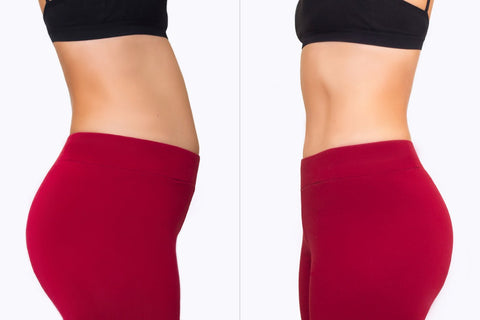This is what you need to know if you regularly feel bloated or retain water.
A bloated stomach or fluid retention are signals from your body. They're not isolated discomforts, but signs that something is out of balance internally. Although these symptoms are often considered "normal," especially for women around their menstrual cycle or during menopause, they're not. They deserve attention, not habit.
The bloated feeling: more than just air in your belly
Bloating isn't the same as fat storage. Your abdomen can feel tight, tense, or distended, without necessarily carrying extra pounds. The cause is often a combination of slow or overstimulated digestion, an imbalance in gut flora, poorly digested food, or a hormonal imbalance.
Diet plays a key role in this. Certain foods, such as artificial sweeteners, processed grains, dairy, or sugary products, can cause fermentation, gas, or inflammation in sensitive guts. Stress, lack of sleep, and eating too quickly (without chewing thoroughly) also contribute to digestive upset and bloating.
In addition, we see that hormonal fluctuations affect bowel function in many women. Estrogen and progesterone, for example, influence the speed at which food moves through the digestive tract. This explains why you may be more susceptible to bloating during the second half of your cycle or just before your period.
Water retention: hormonal and metabolic protection
Fluid retention is a natural protective response of the body, but when it occurs consistently, there's often a disruption. This can be due to hormonal influences (around ovulation, menstruation, or menopause), excessive salt intake, insufficient hydration, or sluggish lymphatic flow. Overloading the liver or kidneys, for example, due to medication, alcohol, or processed foods, can also lead to fluid retention.
What many people forget is that drinking too little also leads to fluid retention. When the body receives the signal that there isn't enough fluid available, it often retains what it has in the legs, ankles, abdomen, or face. Paradoxically, drinking enough water is therefore essential for fluid retention.
Potassium also plays an important role. This mineral works in balance with sodium and helps remove excess fluid from the cells. Potassium-rich foods (such as avocado, banana, spinach, and sweet potato) support this drainage function, as do herbs with natural diuretic properties (think parsley, fennel seed, and nettle).
Nutritional support: choose carefully, don't cut out
Bloating and water retention aren't a matter of "eating less" or "training harder." They require a functional approach to nutrition. Choose fiber-rich vegetables that nourish your gut flora (such as broccoli, parsnips, and leeks), bitter substances that stimulate liver and bile function (such as chicory, arugula, and dandelion leaf), and herbs that support digestion (such as ginger, turmeric, cumin, fennel, and cinnamon).
Hydration is also crucial, but only through pure sources like water, herbal tea, lemon water, and unsweetened coconut water. Avoid processed foods high in salt, sugar, or artificial additives, as these put a strain on your kidneys, intestines, and liver—the organs responsible for removing waste and fluids.
Finally
Bloating or water retention aren't aesthetic problems; they're functional signals from your body that something isn't flowing smoothly. By choosing foods that support your body instead of hindering it, you can feel and see the difference. Not overnight, but consistently, from the inside out.




